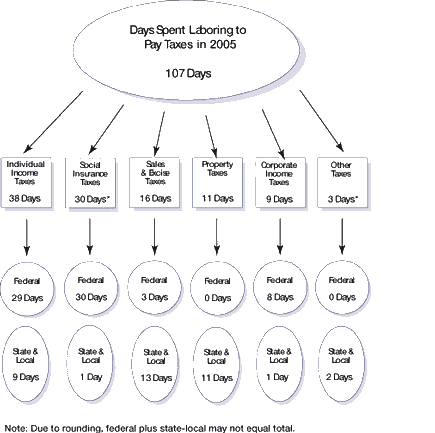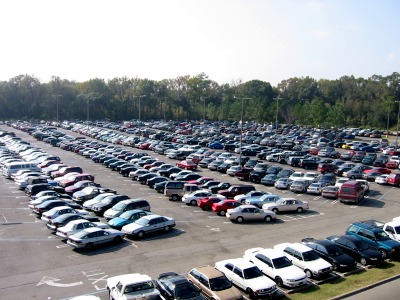New New Deal Programs?
Hit and Run, trying to make a different point, quoted this statement from Harold Meyerson (my emphasis added):
But the new growth of selective libertarianism in the Democratic ranks
is hardly going to be the main source of controversy in coming party
debates. More likely, that debate will pit those who think retraining
is the answer to our more layoff-prone society (that's the Bob Rubin
solution) against those who think that retraining needs to be
supplemented by, for instance, publicly funded alternative energy
programs that would generate millions of jobs (that's the solution of a
number of union leaders, and one that I favor as well). The latter
position is clearly more in the New Deal liberal mode, but Rubin's is
hardly libertarian.
Do serious people actually favor publicly funded alternative energy programs of the scale that would employ millions of people? Note that since the total civilian labor force is approximately 150 million people, he is talking about a program encompassing several percent of the US workforce. I am supposed to be on vacation this week, but here are a couple of random thoughts:
- A huge government make-work program seems to be an odd response to an increase in employment volatility, which is how the problem is framed, even by Meyerson. He calls it our "layoff-prone society." I don't accept that this is necessarily a bad thing, but even if it is, a jobs program does not solve it. Our unemployment today is at a low level (less than 5%) so that the problem, if it exists at all, has to be volatility, not the absolute size of employment. So a jobs program helps, how?
- I will confess a big government-funded jobs program would reduce employment risk in one way: once someone is hired by the government, whether it be a teacher or bureaucrat, it is impossible short of a felony conviction to fire them, no matter how horribly destructively incompetent they are. So anyone hired by this new job program would have a job for life, I guess, though at an enormous dead-weight-loss of the overall economy.
- The current economy hovers near full employment. That means that millions of people sucked by the government into an alternative energy program would be pulled out of areas the market currently says is the most productive place for them. Unless the government has identified a massive market inefficiency, such a program will net reduce the productivity and output of the economy. Remember -- these millions of people are likely employed somewhere else today, so those places they are employed either have to scale back or pay more for labor.
- Does anyone really think the government is going to make the right technology and investment choices in such a program? It will take about 47 seconds before the investment process is politicized and spending is handed out as pork to valued supporters in key Congressional districts. (just look at ethanol and the Midwest Archer Daniels Midland lobby). Remember, the government has been pouring all its investment and subsidies and regulations (e.g. zero emissions requirements) into plug-in electric cars, which still are not there technologically. In the mean time, the market has latched onto hybrids, a technology actually opposed at first by government energy czars in places like California (because they were not zero emissions). Hybrids have done more to reduce automotive fuel consumption than any of the technologies, from plug-ins to fuel cells, that the US government has supported in any big way.
Postscript: Yes, I know plug-in hybrids may be here soon, but batteries are apparently still not where they should be. I would love to have a plug-in hybrid. Note, of course, a plug-in hybrid is very very different from a straight electric car, which was the choice of the bureaucrats. Also, I know that some areas have started to subsidize hybrids, for example by allowing their use by one passenger in the car-pool lane. These are late-to-the-party efforts to claim some government credit for a private market trend already in progress.
Update: In fact, today's SJ($) brings us a relevent example:
[Former Airbus CEO] Mr. Streiff talked of moving production jobs between
partner countries, running Airbus like a business. For the first time,
there was talk of apportioning work on the basis of competitiveness,
not national entitlement. There were hints that Airbus should emulate
Boeing with major risk-sharing partnerships, looking beyond Europe for
new product development resources and production sites. He even
committed the ultimate sin"â€publicly admitting that Airbus had fallen
over a decade behind Boeing in new product development.In his exit statement, Mr. Streiff said, "I
progressively came to the conviction that the mode of corporate
governance at Airbus didn't allow for the success of my plan." In other
words, the now former CEO implies, he was blocked by people who like
the status quo. So who would be happy with the status quo when the
situation is degenerating with each day? Well, any government official
who wants governments to stay in charge of the economy. The last thing
they want to see is private sector cash reinventing the fruit of their
state-directed industrial policy.For the best clue to this dysfunction, consider
France's finance minister, Thierry Breton. He recently told reporters
that Airbus is a "European success," but vowed to "defend this model."
Now why would a model need defending if it were successful?Airbus was created when European governments
orchestrated their economies, creating new national and continental
champions according to politicians' whims. As far as industrial policy
goes, Airbus was a no-brainer: The jetliner industry offers guaranteed
growth rates and extremely high barriers to entry. Take some legacy
industrial assets, insert government cash, find some talented sales
people, and watch it go. Every other European industrial
scheme"â€shipbuilding, cars, Concorde"â€obliterated value. Airbus was the
only state-supported success. Unfortunately, Europe's politicians
forgot a crucial fact: Airbus succeeded despite government industrial
policy, not because of it. In fact, this government interference has
created some serious trouble.Look at the Airbus record: a series of moderate
successes (A300/310, 330), one huge home run (A319/320/321), and some
lamentable but forgivable near misses (A340, A340-500/600). But with
the full support and connivance of parent governments, they launched a
spine-breaking disaster, the superjumbo. Without the A380, Airbus would
still be a tremendous success. Instead, they've got a serious
industrial crisis, right in the middle of the best jetliner market in
years. Mr. Breton's "model" of state-guided industries is alchemy in
reverse: spinning gold into straw.


